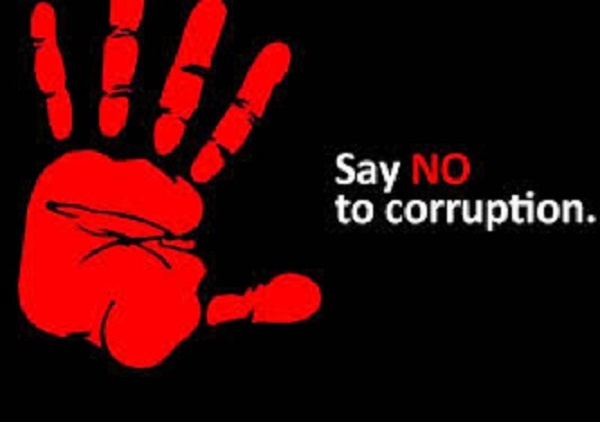Ghana has been ranked 75 out of 180 nations captured in the 2020 Corruption Perceptions Index (CPI) released by Transparency International.
The West African nation scored 43 out of 100 on the Transparency International (TI) CPI report published today.
Ghana gained 2 points compared to its scores of 41 and 40 from the previous two years.
Ghana’s score exceeded the Sub-Saharan African average score of 32.
The country was placed 10th in sub-Saharan African.
Seychelles is ranked highest country in Sub-Saharan Africa with 66 points followed by Botswana with 60, Cabo Verde with 58, Rwanda with 54 and Mauritius scored 53 as the top five countries in SSA.
“Ghana also performed better than 39 other Sub-Saharan African countries including Benin, Lesotho, Burkina Faso, and Ethiopia, etc,” the Ghana Integrity Initiative noted in a statement.
The 2020 Corruption Perceptions Index (CPI) released today by Transparency International reveals that persistent corruption is undermining health care systems and contributing to democratic backsliding amid the COVID-19 pandemic.
Countries that perform well on the index invest more in health care, are better able to provide universal health coverage and are less likely to violate democratic norms and institutions or the rule of law.
With respect to Ghana, the report highlighted the lack of accountability in the management of the COVID-19 pandemic.
It suggested that Ghana strengthens oversight institutions, enforce procurement rules to all contracts, ensure open and transparent contracting to combat wrongdoing, publish relevant data and guarantee access to information to ensure the public receives easy, accessible, timely and meaningful information including and speed up the digitisation of the economy to facilitate more efficient and transparent delivery of key services in the pandemic period.
Global highlights
The 2020 edition of the CPI ranks 180 countries and territories by their perceived levels of public sector corruption, drawing on 13 expert assessments and surveys of business executives. It uses a scale of zero (highly corrupt) to 100 (very clean).
Denmark and New Zealand top the index, with 88 points. Syria, Somalia and South Sudan come last, with 14, 12 and 12 points, respectively.
Significant changes
Since 2012, the earliest point of comparison in the current CPI methodology, 26 countries significantly improved their CPI scores, including Ecuador (39), Greece (50), Guyana (41), Myanmar (28) and South Korea (61).
Twenty-two countries significantly decreased their scores, including Bosnia & Herzegovina (35), Guatemala (25), Lebanon (25), Malawi (30), Malta (53) and Poland (56).
Nearly half of countries have been stagnant on the index for almost a decade, indicating stalled government efforts to tackle the root causes of corruption. More than two-thirds score below 50.
COVID-19
Corruption poses a critical threat to citizens’ lives and livelihoods, especially when combined with a public health emergency. Clean public sectors correlate with greater investment in health care. Uruguay, for example, has the highest CPI score in Latin America (71), invests heavily in health care and has a robust epidemiological surveillance system, which has aided its response to COVID-19 and other infectious diseases, like yellow fever and Zika.
In contrast, Bangladesh scores just 26 and invests little in health care while corruption flourishes during COVID-19, ranging from bribery in health clinics to misappropriated aid. Corruption is also pervasive in the procurement of medical supplies. Countries with higher corruption levels also tend to be the worst violators of rule of law and democratic institutions during the COVID-19 crisis. These include Philippines (34), where the response to COVID-19 has been characterised by major attacks on human rights and media freedom.
Continuing a downward trend, the United States achieves its worst score since 2012, with 67 points. In addition to alleged conflicts of interest and abuse of office at the highest level, in 2020 weak oversight of the US$1 trillion COVID-19 relief package raised serious concerns and marked a retreat from longstanding democratic norms promoting accountable government.
Recommendations
The past year highlighted integrity challenges among even the highest-scoring countries, proving that no country is free of corruption. To reduce corruption and better respond to future crises, Transparency International recommends that all governments:
- Strengthen oversight institutions to ensure resources reach those most in need. Anti-corruption authorities and oversight institutions must have sufficient funds, resources and independence to perform their duties.
- Ensure open and transparent contracting to combat wrongdoing, identify conflicts of interest and ensure fair pricing.
- Defend democracy and promote civic space to create the enabling conditions to hold governments accountable.
- Publish relevant data and guarantee access to information to ensure the public receives easy, accessible, timely and meaningful information.


